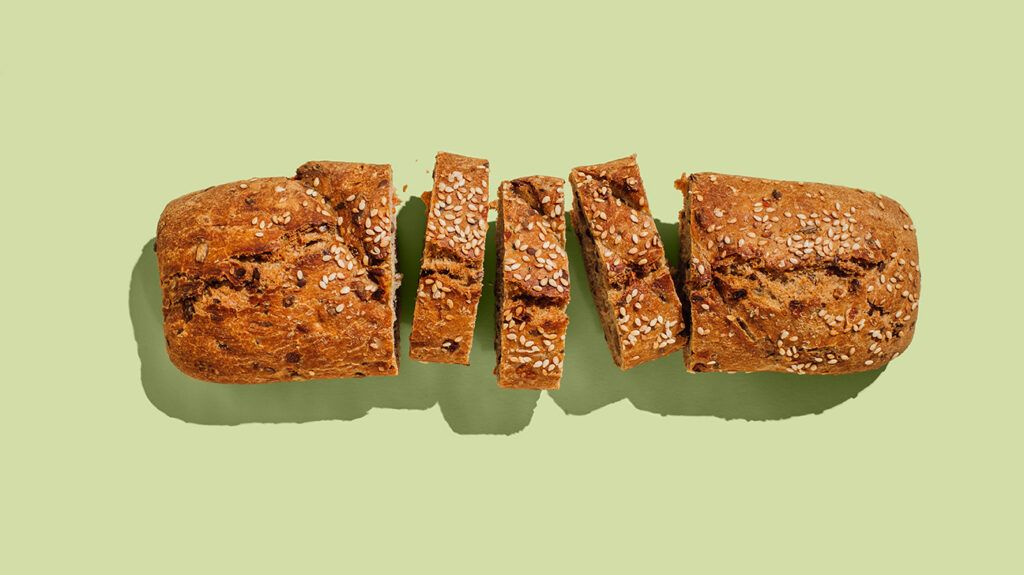Some people claim that certain foods, such as soy, dairy, and specific fats, can lower testosterone levels in the body. However, research into testosterone-lowering foods is limited.
A person can also increase testosterone levels naturally by exercising regularly and maintaining a moderate weight.
The food an individual eats can affect many aspects of health. Food powers the cells and may affect some of the body’s other components, including hormones such as testosterone.
This article explores whether diet can lower testosterone and which foods may affect it.
A note about sex and gender
Sex and gender exist on spectrums. This article will use the terms “male,” “female,” or both to refer to sex assigned at birth. Click here to learn more.

Testosterone is one of the major sex hormones in the body. Although males produce more testosterone, it is also an important hormone for females. Testosterone promotes an increase in:
- muscle mass
- bone mass
- body hair
Typically, the body does an effective job regulating the hormones and keeping levels of testosterone where they need to be.
Some individuals claim that an excess of certain foods may interfere with this process, resulting in a hormonal imbalance. People who have concerns about their testosterone levels might choose to limit the following foods.
However, it is important to note that the research regarding food’s ability to lower testosterone levels is limited. As the current evidence exists, it is not possible to draw strong conclusions about the following foods and testosterone levels.
Soy foods, such as tofu, edamame, and soy protein isolates, contain phytoestrogens. These compounds are physically similar to the estrogen in the body and function in a similar way.
An older
The author notes that many studies have not found a connection between eating soy products and altered serum testosterone or estrogen levels.
In fact, a 2021 meta-analysis concludes that neither soy nor phytoestrogens have any effect on testosterone levels. A technical review the same year confirms there is no evidence supporting the claim that phytoestrogens disrupt the human endocrine system.
Anyone with concerns about their testosterone levels might also consider giving up or limiting alcohol. This may be especially true for males.
While some studies have found evidence that a small amount of alcohol increases testosterone levels in males, this is generally not the case. As a 2017 review notes, heavy drinking or regular drinking over long periods causes a
The paper also notes that alcohol consumption causes an increase in testosterone levels in females.
Learn more about alcohol and testosterone.
The menthol in mint may reduce testosterone levels, but there is a lack of human research to support this.
According to a 2017 study, scientists treated female rats with polycystic ovarian syndrome (PCOS) with spearmint essential oil to test its effects on the disorder. Researchers noted that spearmint essential oil
An
However, there is not enough high quality evidence surrounding the effect of the herb in general, particularly on males who have concerns about their testosterone levels.
Most of the research on the topic focuses on animal models or females. Future studies should investigate the effects of mint on both sexes to get a better overall picture.
A
According to the research, these participants also had decreased muscle mass and increased body fat.
A
Ideally, any future studies would look into the effects of licorice on both sexes to better understand how the herb acts in general.
The type of fat a person eats may also affect their testosterone levels and function. A 2017 study looked at the dietary patterns of young, healthy men in regard to their hormone levels and testicular function.
The research indicated that eating trans fats
However, eating plenty of polyunsaturated omega-3 fatty acids may increase testicle size and improve function. The researchers called for more studies to confirm their findings, but people concerned about their testosterone levels may want to avoid trans fats and limit omega-6 fats.
Other factors that may influence hormone imbalances or low testosterone include:
- aging
- a sedentary lifestyle
- chronic drug, tobacco, and cannabis use
- obesity
- diabetes
There may also be some ways to boost testosterone naturally, including:
- eating a more balanced diet focused on fresh foods
- avoiding eating in excess
- managing a moderate weight and avoiding obesity
- exercising regularly
- getting adequate sleep each night
Does nicotine affect testosterone levels?
It is unclear whether nicotine affects testosterone. Studies have found either no effect, increased testosterone in smokers, or the opposite.
Does masturbating reduce testosterone?
No, masturbating does not reduce testosterone levels.
Which nuts decrease testosterone?
Despite common beliefs that certain nuts decrease testosterone, there is very little scientific evidence to support this. More research is necessary.
Diet and exercise play an essential role in maintaining health and keeping the hormones balanced. Some people claim that certain foods — especially soy — may reduce testosterone levels in the body.
However, studies largely show a lack of evidence for these claims. Nevertheless, anyone concerned about their testosterone levels may want to limit these foods.
